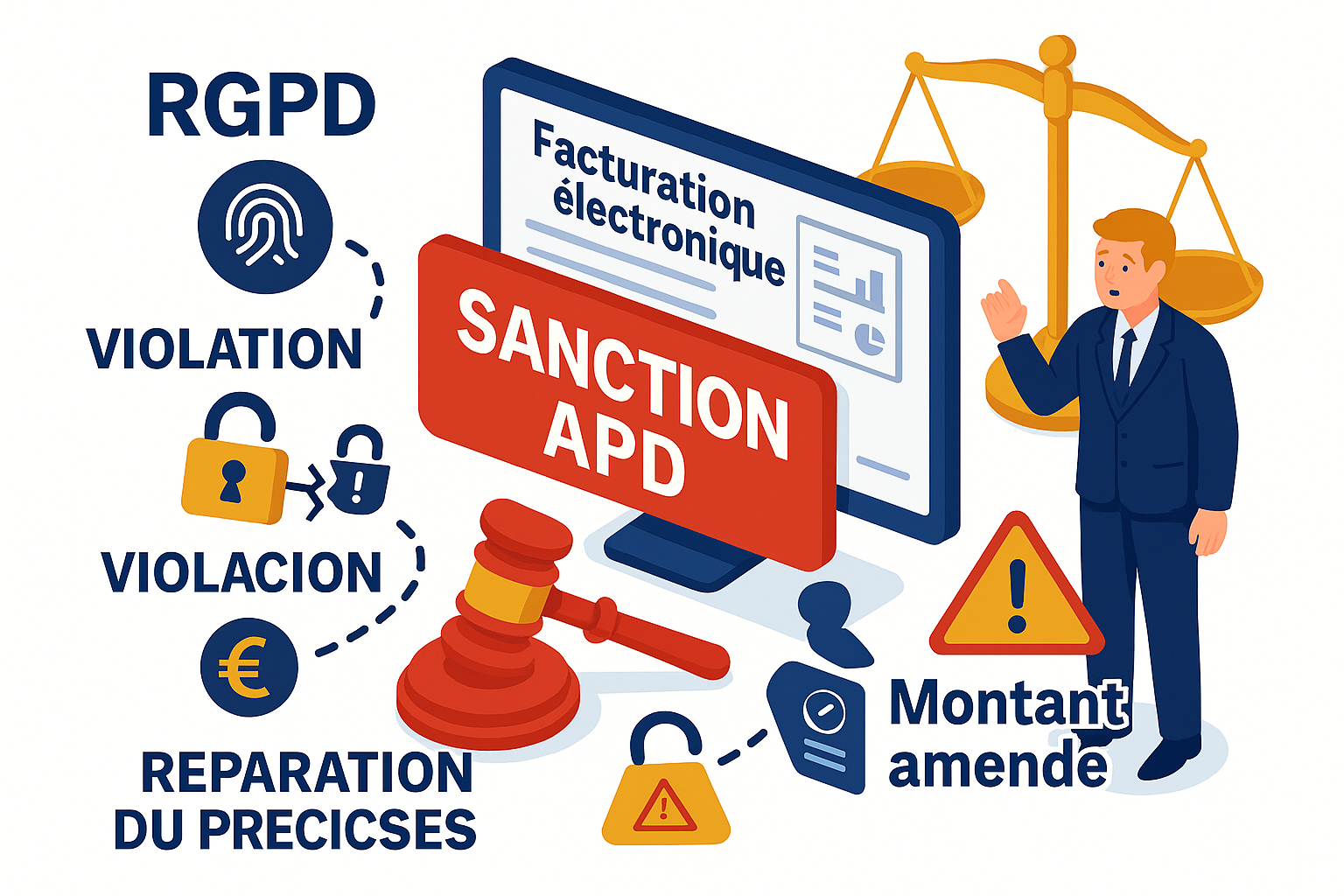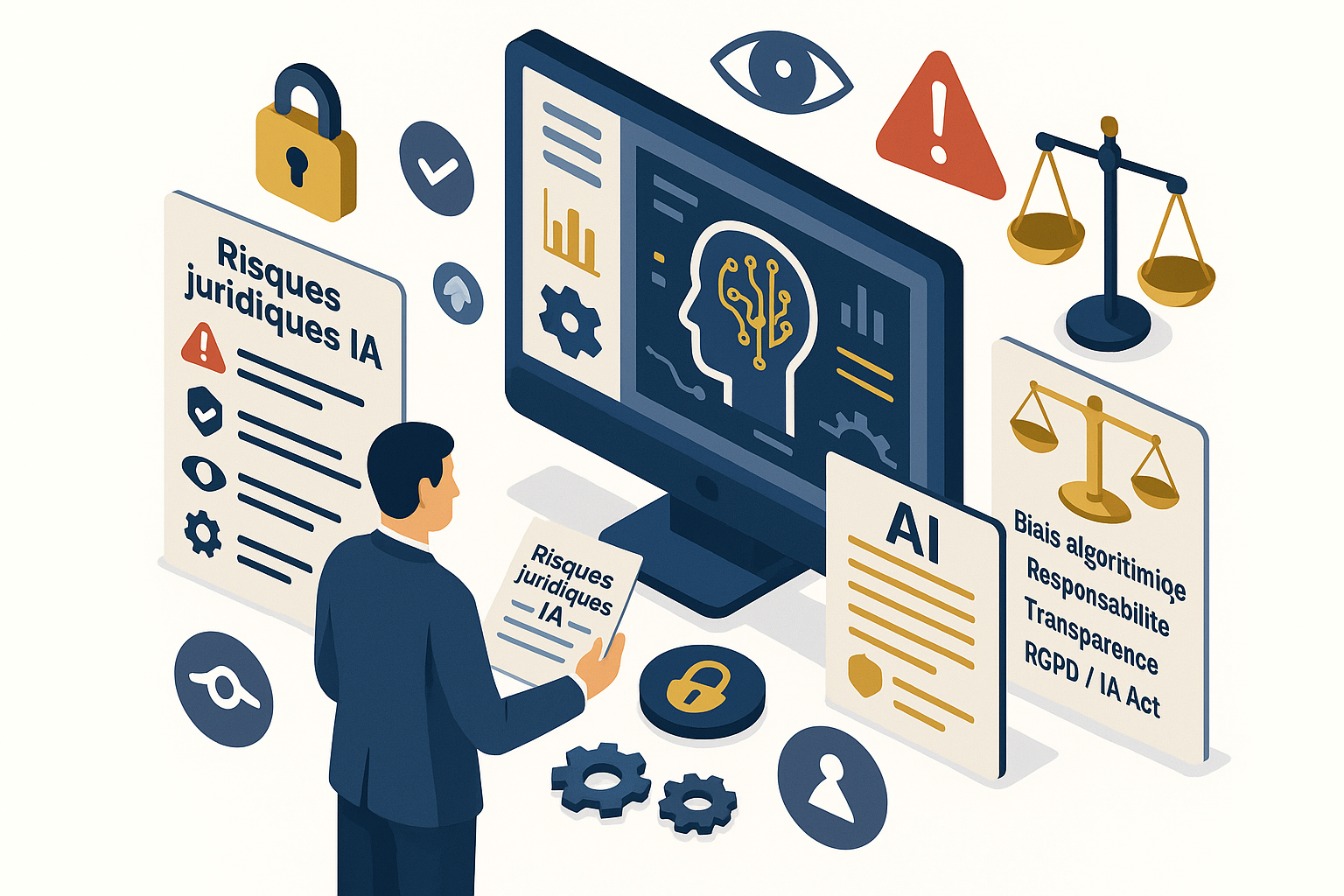The DPA (Data Protection Authority) has fined an e-invoicing site for violating the RGPD.
In an increasingly digital world, the protection of personal data has become a crucial issue for businesses. Recently, theDPA (Data Protection Authority) fined an e-invoicing site, Webrasoft SRL, for breachingArticle 32 GDPR regarding data security.
This case raises important questions about companies' responsibilities in terms of cybersecurity and compliance with data protection legislation. Theabsence of regular security assessments not only led to a cyber attack, but also enabled access to sensitive data such as bank account numbers. This case highlights the real consequences that breaches of security standards can have on businesses, as well as consumer confidence.
In this article, we'll look at the implications of this breach, the details of the cyberattack and the lessons companies can learn to strengthen their security measures.
If you would like to hire a RGPD lawyer, contact me!
1. What are the data security implications of non-compliance with Article 32 of the GDPR?
When a company fails to comply with the requirements ofArticle 32 GDPR, it can have serious consequences for the health of the personal data it manages. This article, which concerns the security of processing, imposes strict obligations to protect data against unauthorized access and other forms of unlawful processing.
In the case of Webrasoft SRL, failure to comply with these obligations enabled a third party to launch a successful cyber attack. Immediate consequences include:
- Unauthorized access to sensitive information such as names, bank account numbers and other personal data.
- This has a direct impact on the trust of customers, who may feel vulnerable if their personal information is compromised.
- Significant financial penalties, in this case a fine of RON 99,518 (€20,000), illustrating the potential costs associated with poor data security management.
Indeed, the absence of periodic testing to assess the effectiveness of security measures clearly hampered the company's ability to protect data. The DPA noted that this negligence directly contributed to the breach of data protection principles, making it difficult to meet the requirements of confidentiality,integrity and continued resilience of the systems concerned.
For businesses, this incident highlights the crucial importance ofregular information systems securityassessments. It underlines that preventing data breaches starts with a serious understanding and implementation of the obligations set out in the RGPD.
As we continue our analysis, it's essential to understand how this cyber attack came about, as well as the types of data that have been compromised.
2. How did the cyber attack happen and what data was compromised?
The cyber-attack targeting Webrasoft SRL highlighted several flaws in the company's security system. It revealed the extent to which certain essential technical measures were either not in place or poorly implemented. The attackers exploited existing vulnerabilities due to a lack of cybersecurity vigilance, raising fundamental questions about data protection risk management.
The main factors behind this attack include:
- A lack of regular software updates, opening the door to security loopholes that can be exploited by malicious third parties.
- Lack of employee training in security practices, which could have made them more alert to potential threats, such as phishing.
- Failure to comply with established safety protocols, which should have been rigorously monitored and strictly enforced.
Concerning the data compromised in this breach, the affected information includes:
- Names of customers and users, compromising their right to confidentiality.
- Bank details and financial information, with a direct impact on the economic security of these individuals.
- Other personally identifiable data which, once disclosed, can have disastrous consequences for victims.
This underscores the importance of implementing robust technical measures to protect information systems. It is imperative that companies adopt data processing practices that not only comply with RGPD obligations, but also strengthen their overall security posture.
Against this backdrop, it becomes essential to reflect on the lessons to be learned to optimize data security within companies. This means revisiting existing security procedures and promoting a culture of security within teams.
3. What lessons has this case taught companies about cybersecurity and data protection?
The Webrasoft SRL case offers a valuable opportunity to learn from mistakes made in cybersecurity and RGPD compliance. The penalty imposed by the DPA highlights the importance of a proactive approach to ensuring the safety of personal data. A robust security framework must be established and maintained to avoid such breaches in the future.
Here are some key lessons that emerge from this case:
- Regular risk assessment: Companies need to carry out frequent assessments of their security systems to identify and correct potential vulnerabilities before they are exploited.
- Ongoing employee training: Raising awareness and training teams in cybersecurity best practices are key to reducing the risk of breaches, particularly in relation to threats such as phishing.
- Strict GDPR compliance: Rigorous implementation of the measures defined byArticle 32 GDPR is unacceptable. This includes the need for regular testing and security updates.
- Security culture: Promoting a corporate culture focused on data security is crucial. Every employee must understand his or her role in protecting sensitive information.
In short, the breach suffered by Webrasoft SRL should serve as an example to all companies. Data protection is not only a legal obligation, but also a business imperative. Customer trust depends on companies' ability to secure their personal information.
To go further, it is also important to explore the implications of any sanctions imposed, and to integrate these practices into the company's risk management strategy. Cybersecurity should be seen not as an additional cost, but as an essential investment in an organization's future and reputation.




